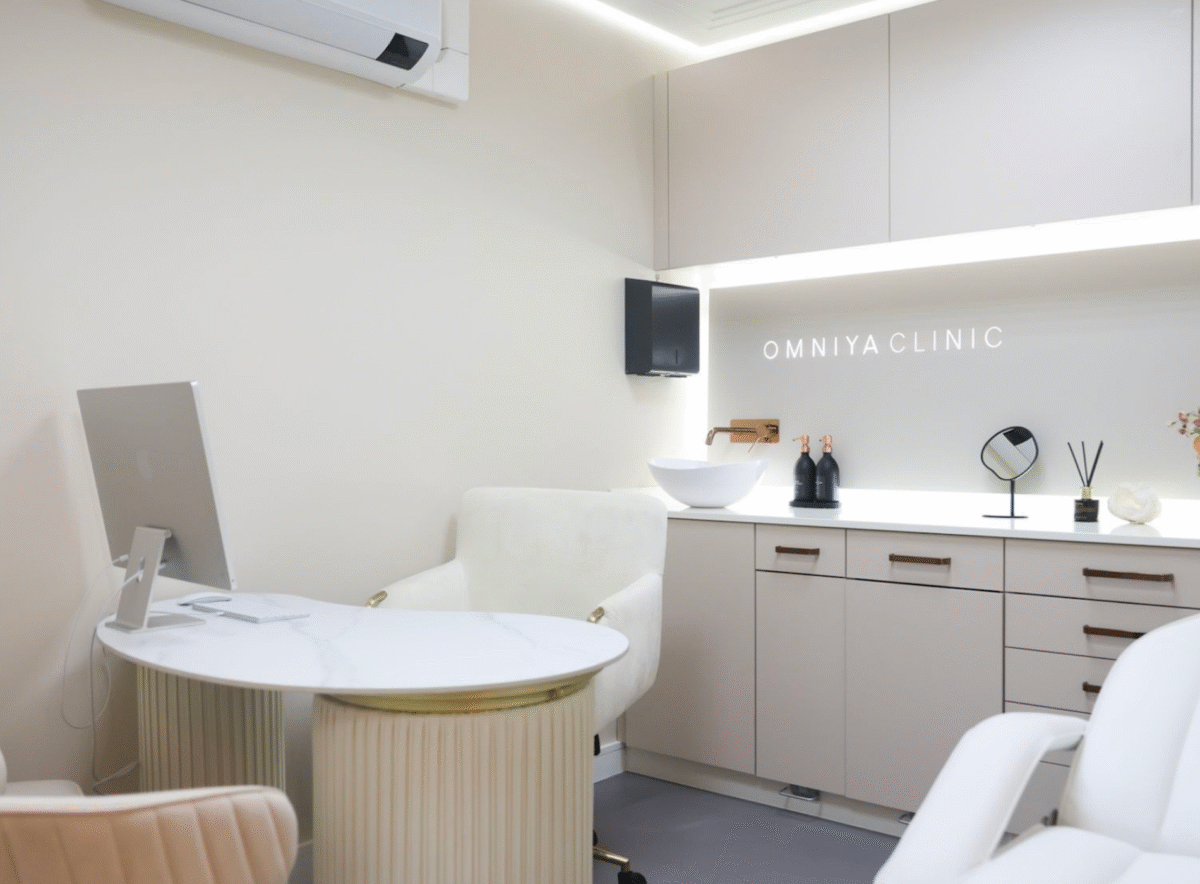3a Montpelier Street, Knightsbridge, London, SW7 1EX
020 7584 4777
[email protected]
- Treatments
- Injectables
- Hormone Therapy & Medical
- Facials & Beauty
- Skin Machines & Lasers
- Concerns
- Prescriptions
- The Clinic
A dip in sexual desire can happen to anyone, and it’s often temporary and treatable. Low libido, also known as low sex drive, can be caused by many factors including hormonal changes, stress, sleep deprivation, relationship dynamics, medications, or underlying health conditions.
At Omniya Clinic in Knightsbridge, our doctors take a medical, root-cause approach to help you understand what’s behind the change in your libido. Your treatment plan is built around you, whether that includes Hormone Replacement Therapy (HRT), Testosterone Replacement Therapy (TRT), Thyroid optimisation, or lifestyle and nutritional strategies to restore energy and confidence.
Low libido is more common than people realise, and at Omniya you can speak openly with experienced clinicians who listen, understand, and guide you through options designed to help you feel balanced, physically and emotionally.

Low libido- also known as low sex drive – refers to a persistent reduction in sexual interest or desire that feels out of character for you and begins to affect your wellbeing, confidence, or relationships. It can affect both men and women at any stage of life.
Low libido may appear on its own or alongside other symptoms such as fatigue, low mood, anxiety, vaginal dryness, erectile difficulties, or hormonal changes. While short-term dips are normal and often linked to stress or sleep disruption, ongoing low libido can indicate treatable medical, hormonal, or psychological causes.
A detailed assessment at Omniya Clinic helps identify what’s driving the change – whether hormonal imbalance, thyroid issues, medication effects, or lifestyle factors – so you can regain balance, energy, and confidence.

Low libido can develop for many reasons — and often, more than one factor is involved. At Omniya Clinic in Knightsbridge, we explore the full picture: hormones, health, sleep, stress, and medication effects, before creating a plan that’s right for you.
Because libido is influenced by many interconnected systems, our doctors take a root-cause approach — combining hormone testing, thyroid assessment, and lifestyle evaluation to build a personalised treatment plan that restores both physical and emotional vitality.

Low libido can appear gradually or quite suddenly, and it often overlaps with other physical or emotional changes. Recognising these signs early can help you get the right support and restore balance more quickly.
Common symptoms and signs include:
If symptoms last more than a few weeks, cause distress, or you notice new physical changes, such as erectile difficulties or vaginal discomfort, it’s time to book a medical review.
At Omniya Clinic, our doctors provide discreet, doctor-led support to help uncover the cause and guide you toward effective treatment options.

Alongside medical support, small, consistent lifestyle changes can make a real difference to sexual wellbeing and libido. These foundations help regulate hormones, improve mood, and strengthen connection – all of which contribute to a healthier sex drive.
These small, steady steps work best alongside personalised medical support. At Omniya Clinic in Knightsbridge, your clinician will help you build on these foundations with tailored treatments designed to restore confidence and wellbeing.

If low testosterone is the driver and TRT is appropriate, libido and energy often improve within weeks; benefits build over months with correct dosing and monitoring.
There are oestrogen-only HRT treatments and combined oestrogen and progesterone. After listening to an individual’s symptoms and performing associated investigations, our doctors will be able to advise on the most suitable and best treatment.
Symptoms (low desire, morning erections reduced, low energy) plus blood tests taken at the right time help confirm. If indicated, we’ll discuss options, including non-TRT measures.
Not necessarily. HRT is reviewed regularly and continued only if benefits outweigh risks for you. Many patients use the lowest effective dose and reassess over time.
Yes. Addressing sleep, stress, relationship factors and medication side-effects often helps. For genitourinary symptoms (e.g., vaginal dryness), local oestrogen can improve comfort during sex; your clinician can advise.

During your consultation, we will advise you on the best treatments and products to use at home.
*Available with participating practitioners